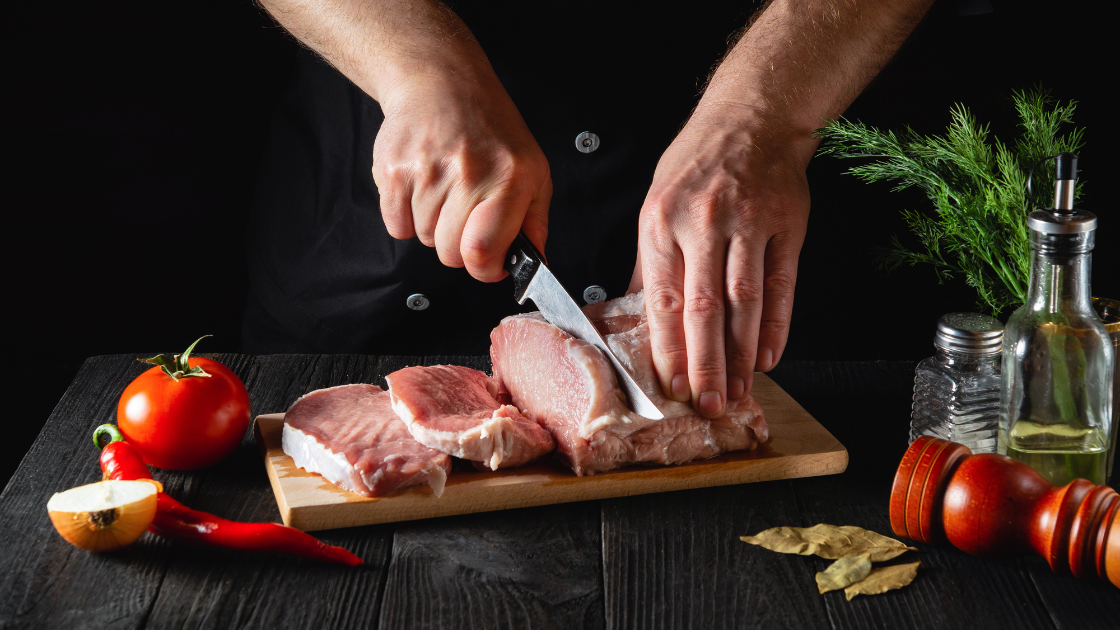Butchery is an important kitchen skill that transforms a simple piece of meat into a masterpiece. For home cooks, learning basic butchery skills can be both empowering and cost-effective. Whether you're a novice or an experienced cook, mastering meat cutting techniques can elevate your cooking game. Let’s explore essential butchery skills, meat preparation tips, and the benefits of butchering your own meat and fish. Plus, we'll highlight some knife skill classes in Toronto to help you get started.
Basic Butchery Skills
Before diving into the world of butchery, it's important to understand the basics. Basic butchery skills include knowing how to handle a knife, identifying different cuts of meat, and understanding the anatomy of the animal. Here are a few foundational skills every home cook should learn:
- Knife Handling: A sharp knife is your best friend in the kitchen. Learn how to hold and maneuver your knife safely to make precise cuts.
- Identifying Cuts: Familiarize yourself with the various cuts of meat, such as ribeye, tenderloin, and brisket. Knowing where each cut comes from helps in selecting the right piece for your dish.
- Trimming and Deboning: Learn how to trim excess fat and remove bones from meat. This not only improves the presentation but also enhances the flavor and texture.
Meat Cutting Techniques
Mastering meat cutting techniques is essential for achieving the perfect cut. Here are some techniques to get you started:
- Slicing: Use a long, smooth motion to slice meat thinly. This technique is ideal for cuts like flank steak and roast beef.
- Dicing: For stews and stir-fries, dicing meat into uniform cubes ensures even cooking.
- Butterflying: This technique involves cutting meat horizontally to create a thinner, more even piece. It's perfect for chicken breasts and pork chops.
How to Butcher Meat
Learning how to butcher meat at home can be a rewarding experience. Here are some steps to guide you through the process:
- Preparation: Start with a clean workspace and gather your tools, including a sharp knife, cutting board, and kitchen shears.
- Breaking Down the Meat: Begin by separating the larger sections of the meat. For example, when butchering a chicken, remove the wings, legs, and breasts first.
- Trimming and Portioning: Trim any excess fat and portion the meat into desired cuts. This step allows you to customize the size and shape of your meat.
Meat Preparation Tips
Proper meat preparation is key to delicious dishes. Here are some tips to enhance your meat preparation skills:
- Marinating: Marinating meat adds flavor and tenderizes tougher cuts. Use a mixture of acid (like lemon juice or vinegar), oil, and seasonings.
- Resting: Allow meat to rest after cooking to retain its juices. This results in a more flavorful and tender bite.
- Seasoning: Don't be afraid to season generously. Salt and pepper are essential, but herbs and spices can elevate the flavor profile.
Learn How to Butcher: Knife Skill Classes in Toronto
If you're eager to learn how to butcher, consider taking knife skill classes in Toronto. These classes offer hands-on experience and expert guidance. Some popular options include:
- The Chef Upstairs: Offers a variety of cooking classes, including knife skills and butchery. Brand new Culinary 101: World Tour program (Weekly. No commitment!).
- Centennial College and George Brown College: Their culinary arts programs includes courses on butchery and meat cutting techniques.
Benefits of Butchering Your Own Meat and Fish
Butchering your own meat and fish comes with several benefits:
- Cost Savings: Buying whole cuts of meat is often cheaper than purchasing pre-cut portions.
- Customization: You have control over the size and thickness of your cuts, allowing for more personalized dishes.
- Quality Control: By butchering your own meat, you can ensure the freshness and quality of the product.
- Sustainability: Utilizing the entire animal reduces waste and promotes sustainable cooking practices.
Mastering the art of butchery is a valuable skill for any home cook. By learning basic butchery skills, meat cutting techniques, and proper meat preparation tips, you can elevate your culinary creations. Consider taking knife skill classes in Toronto and Vaughan at The Chef Upstairs to further enhance your abilities. The benefits of butchering your own meat and fish are numerous, making it a worthwhile endeavor for any cooking enthusiast. Happy butchering!
*****
By Chef Julian Pancer, The Chef Upstairs


